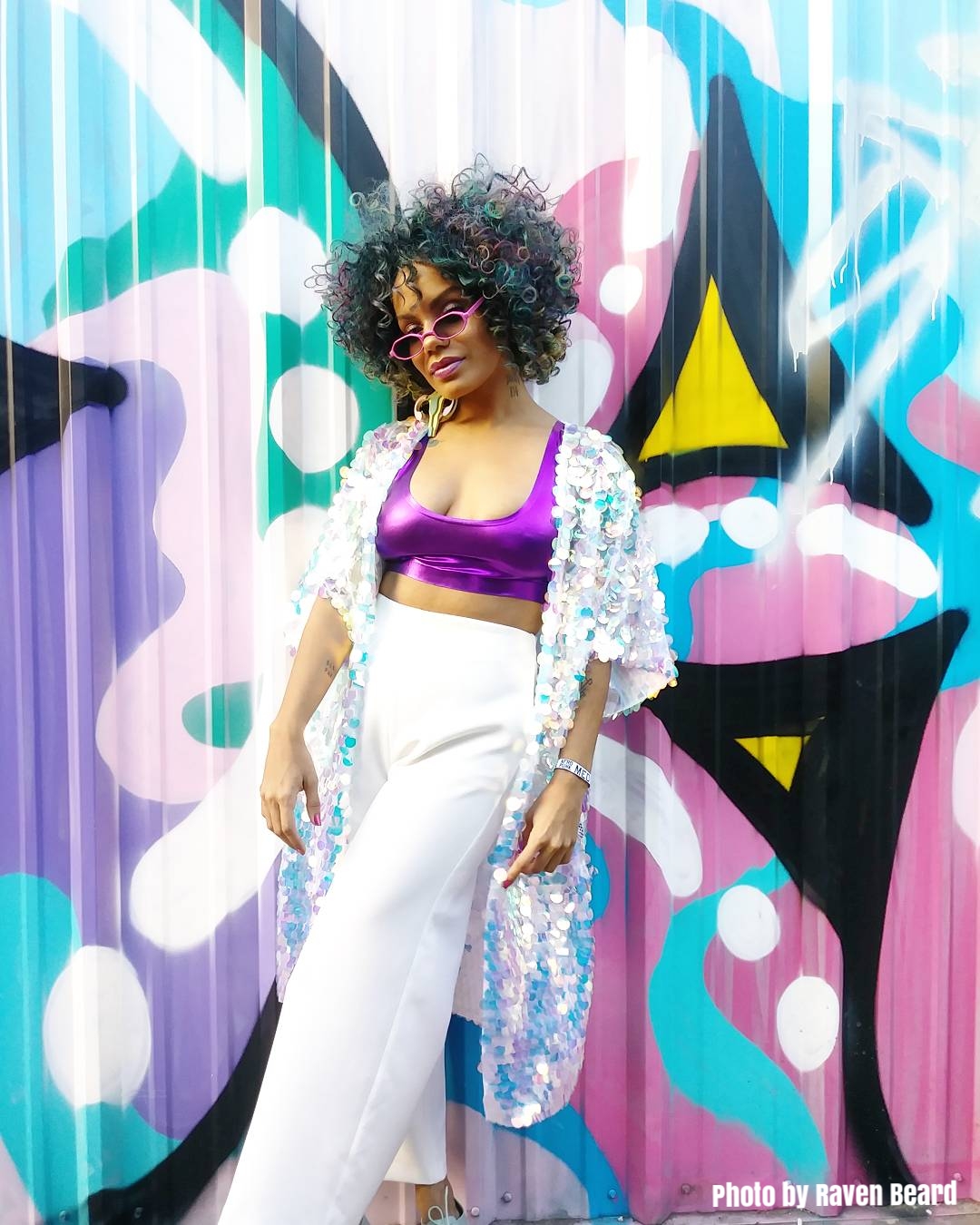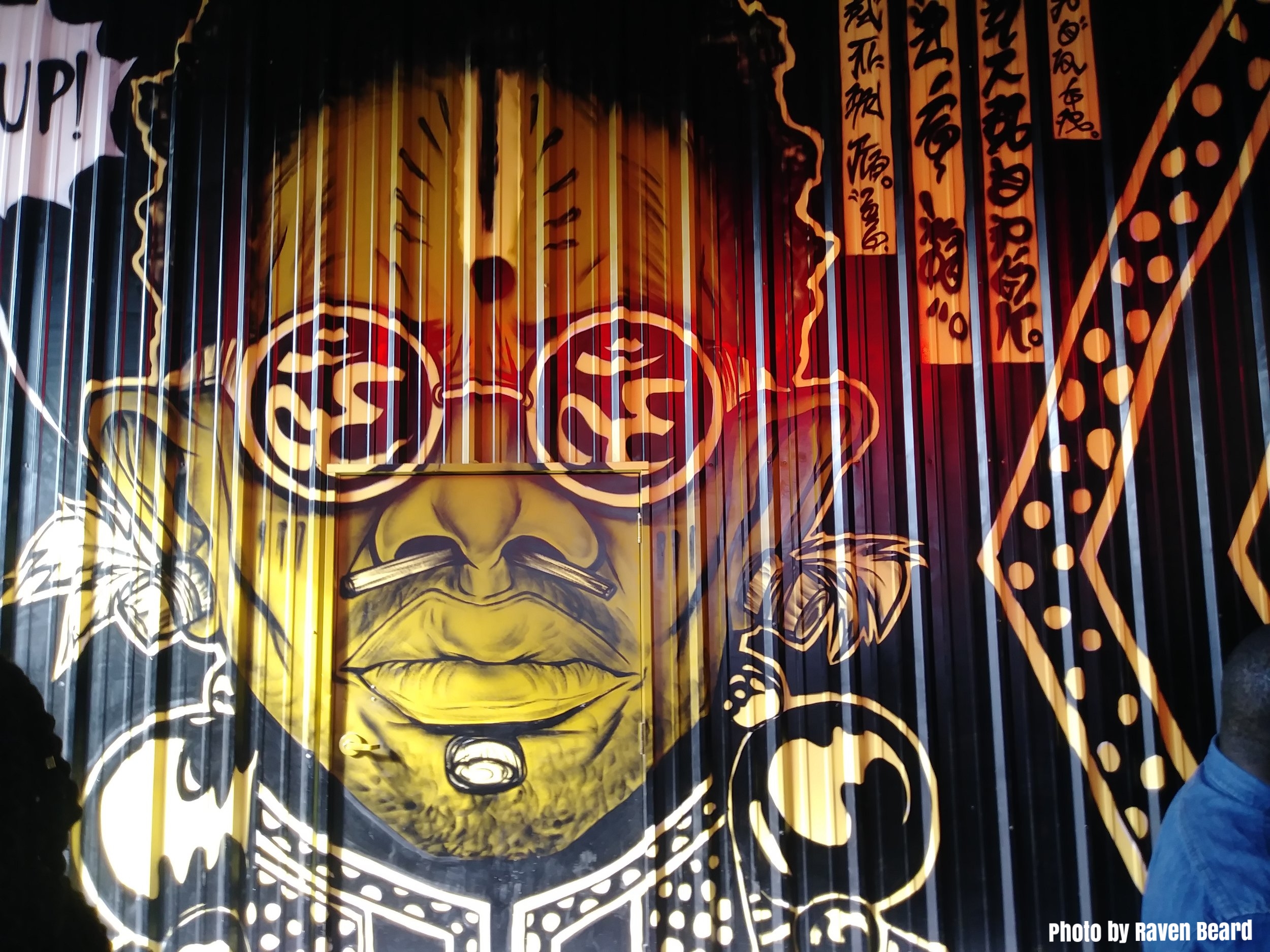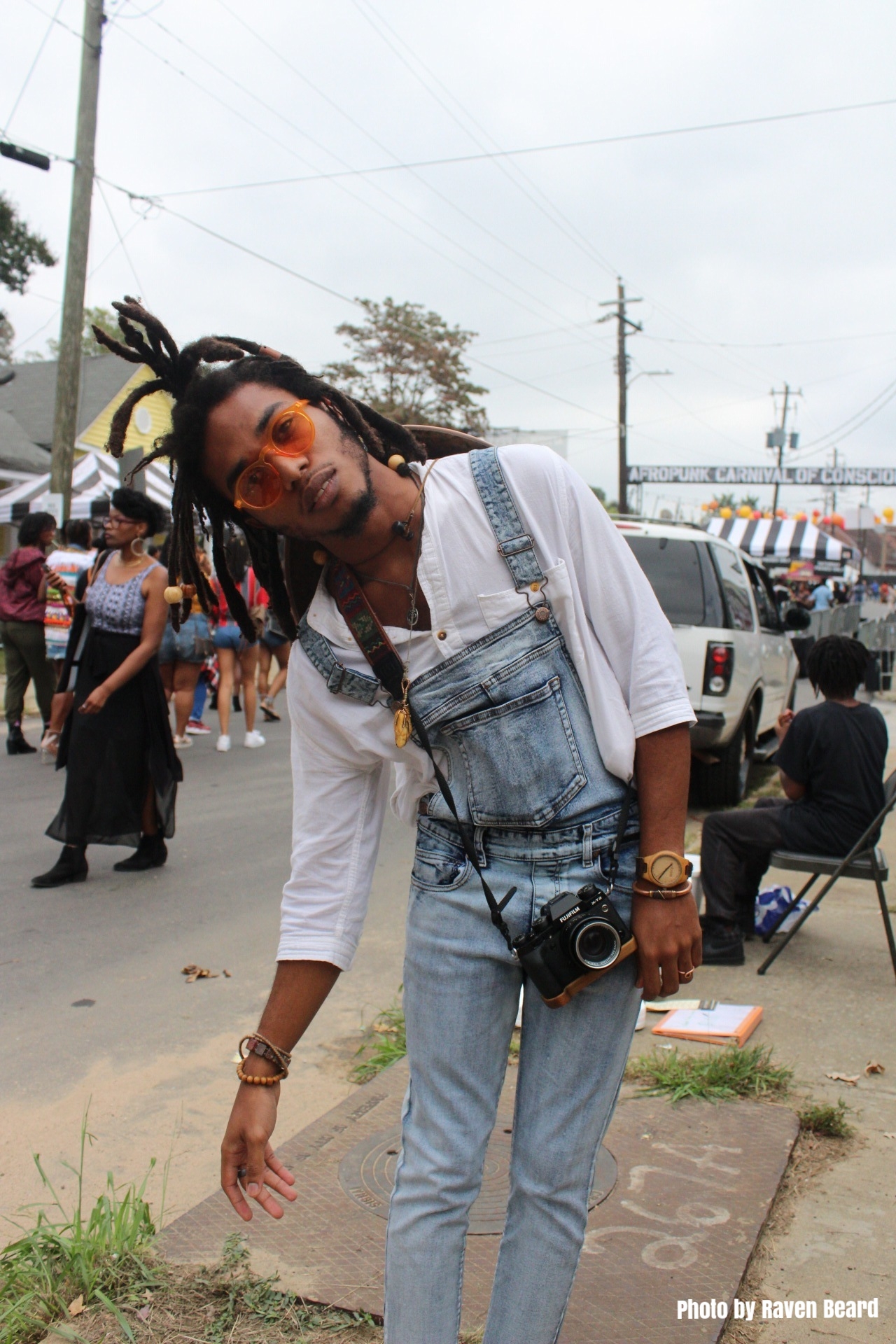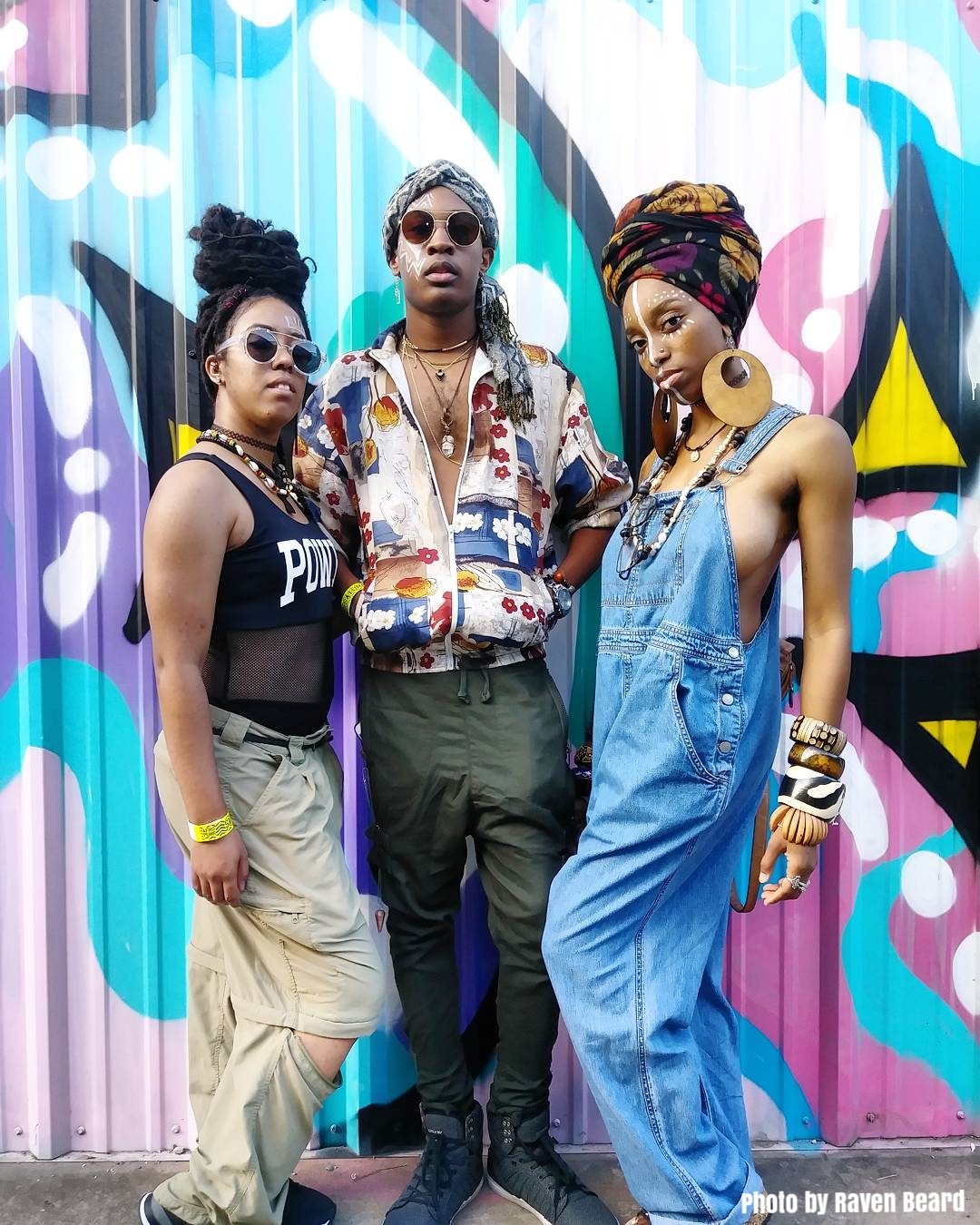BLACK, PUNK & RESILIENT
As I looked back at a year with 45 at the helm, I began to think about what it means to be Black in such an era (both literally and figuratively)... my thoughts took me back to my teen years. As a young Black girl growing up in an all White community, my teen angst was punk AF. I’m talking screamo bands, mad eyeliner, studded belts, and only shopping at Hot Topic (before it was taken over by the $c3n3 k!dz). It was a far cry from what all the other White kids in my town were listening to and wearing, consisting mostly of Taylor Swift and American Eagle Outfitters. Being punk was my intentional middle finger to the normative culture I was alienated from. I felt it to be the only part of my identity that I had control over, that wasn’t already shaped by other people’s perceptions of me. I was already the only Black girl, why not be even more of an outlier? However, as I grew older and my Blackness became a more embedded part of my self-awareness, I distanced myself from the punk aesthetic. I didn’t see anyone who looked like me at the hardcore shows or when I was getting my latest band tee at Hot Topic. Being Black and punk didn’t really exist so I didn’t think there was space for both to exist simultaneously. I was wrong.
Enter: AFROPUNK (Atlanta).
Photo by Raven Beard (@raybphotography)
The space I’ve always been looking for.
Afropunk is proof of the multidimensionality that is Black culture. While the platform has grown exponentially since it’s birth in 2005, it has expanded to allow every kind of marginalized identity to celebrate itself in a safe space. It has become a space for subcultural celebration, for even the musical outliers of various genres to have a platform. For some attendees, this is the safest space for them to exist wholly and openly. The anticipation for Afropunk isn’t solely about which media outlets will be there to snap street style photos, but also anticipation to have an outlet that can’t be found elsewhere.
Photo by Raven Beard (@raybphotography)
This year I decided to head down to Hotlanta for Afropunk. I talked to people who came from rural communities where their identity as a Black queer person is dangerous to embody. It’s dangerous for them to dress the way they do at Afropunk, so they treasure that time where they can be appreciated and receive at least a couple of “YASSS QUEEN!”s for their fit. It’s like every social movement wrapped into one: #BodyPositive, #FreeTheNipple, #BlackGirlMagic, #BlackBoyJoy, #DisabledandCute, #GenderQueer, #EffYourBeautyStandards, and #BlackLivesMatter.
There is no space for anyone to be excluded, and for the folks who have only ever experienced exclusion, this space is a saving grace.
Afropunk Atlanta, very suitably titled “The Carnival of Consciousness” featured not only an incredible lineup of performers, but also dope activities in between. There’s the usual Activism Row and Spinthrift Market, but Atlanta had two additions unique to the space—Art & Times and Solution Sessions. Art & Times featured art installations that were #woke and felt like moving through a snapshot of the civil rights movement. The Solution Sessions felt like chillin’ in a colorful yurt while listening to some of your fav activists, like Michaela Angela Davis and Ebonee Davis. And what better way to end the festivities than having a good cry-dance while Solange performs ‘Cranes in the Sky’?
That weekend left me feeling so liberated and comfortable in my skin. I went braless both days, something that I’ve been trying to work up the courage to do for a minute. As a thick girl that’s still trying to work out the contract between me and my curves, seeing other big girls in all their glory made me feel so body positive. Afropunk made me feel whole in my identity. It made me nostalgic for the days where my iPod Classic was filled with all kinds of music, a different genre for every mood, but also made me feel empowered to embody all of the parts of me at the same time. As Ebonee Davis penned in her essay for Essence, “Some days I'm poetry. Some days I'm rap. Some days I'm R&B. Some days I'm rock. Some days I'm soul. Some days I'm silence.” At Afropunk, you can be literally ALL OF THE THINGS.
Though I’ve been to Afropunk Brooklyn for the past two years, Atlanta felt like a spiritual release. It was incredible to experience the festival in a different context during this very specific time in our country's history — and see the unique angle that Atlanta had to offer. Not to mention, almost every food truck was Southern cuisine, which I am always here for.
Taking into account the realities in which we exist, spaces like Afropunk remind us that no matter what's happening in the news, showing up as yourself and celebrating Blackness is not only a must but also it's own beautiful political statement. So, if you're a fan of Afropunk Brooklyn then you absolutely need to attend Afropunk Atlanta next year. You might as well add London, Paris, and Johannesburg to your list while you’re at it. We can MOB together (see what I did there?).
Here’s to the utopia that is our beloved Afropunk and our resilient community.
And most importantly, to being Afro and Punk at the same time.






